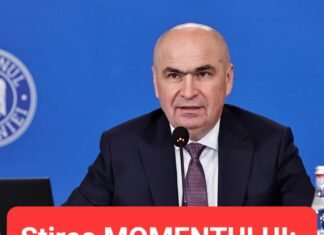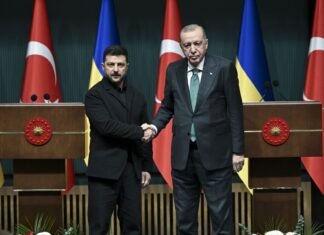Grindeanu: No Short-Term Partnerships in Political Alliances
Sorin Grindeanu, a prominent figure in Romanian politics, has made a bold statement regarding his stance on political partnerships, especially concerning the Social Democratic Party (PSD). In a recent address, Grindeanu articulated his concerns about transient alliances that lack long-term commitment and stability. He strongly believes that engaging in partnerships that last only six months is not conducive to a healthy political environment.
According to Grindeanu, such fleeting collaborations often lead to instability and unpredictability within the governing body. He expressed that the implications of these short-lived alliances could result in the PSD being sidelined from future majorities due to strategic maneuvers and political gamesmanship by other parties. This point of view emphasizes the need for a more thoughtful approach to political partnerships, one that prioritizes enduring relationships over temporary gains.
The call for greater commitment in forming alliances reflects not only a personal belief of Grindeanu but also resonates with broader concerns within the political landscape of Romania. It underscores a desire for better governance through stability, which can facilitate more coherent policy-making and more meaningful dialogue among party members. Grindeanu’s warning serves as a wake-up call for other political entities to reconsider their strategies and remain vigilant against the pitfalls of opportunism.
Grindeanu’s remarks have triggered discussions about the nature of coalition politics in Romania. As political parties navigate complex dynamics, the risk of disaggregation looms large. Short-term alliances can lead to fragmentation, where parties pursue narrow objectives at the expense of larger, collective goals. In such scenarios, it becomes challenging to maintain a unified front on pressing issues, subsequently harming public trust in political institutions.
Moreover, establishing stable partnerships can foster a climate of collaboration that is sorely needed at a time when Romania is facing numerous challenges, both internally and externally. Issues such as economic recovery post-pandemic, energy sustainability, and governance reform require a united approach. Grindeanu’s perspective reinforces the notion that cooperative politics should outweigh tactical games that serve only the interests of select groups.
In light of these considerations, Grindeanu’s call for sustained partnerships should be taken seriously. It paves the way for a renewed commitment among political actors to pursue long-term strategies that benefit the greater populace. As the political landscape continues to evolve, fostering alliances built on mutual respect and shared objectives can lead to better governance and ultimately serve the interests of citizens.
In conclusion, Sorin Grindeanu’s emphasis on avoiding short-term political partnerships reflects a growing consensus around the need for deeper cooperation in Romanian politics. His insights urge political leaders to think critically about the implications of their alliances and to work towards cohesive partnerships that prioritize the long-term welfare of the nation. Short-term strategies may yield immediate benefits for some, but they can jeopardize the integrity of political stability required for comprehensive progress. Grindeanu champions a future where the PSD and other parties can rise above mere opportunism and engage in a politics of partnership grounded in trust and shared vision.






